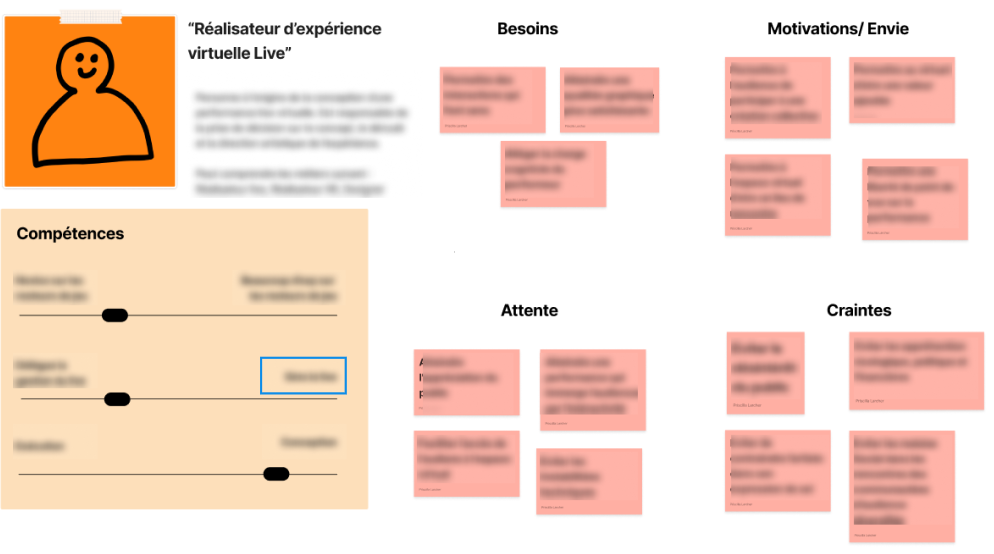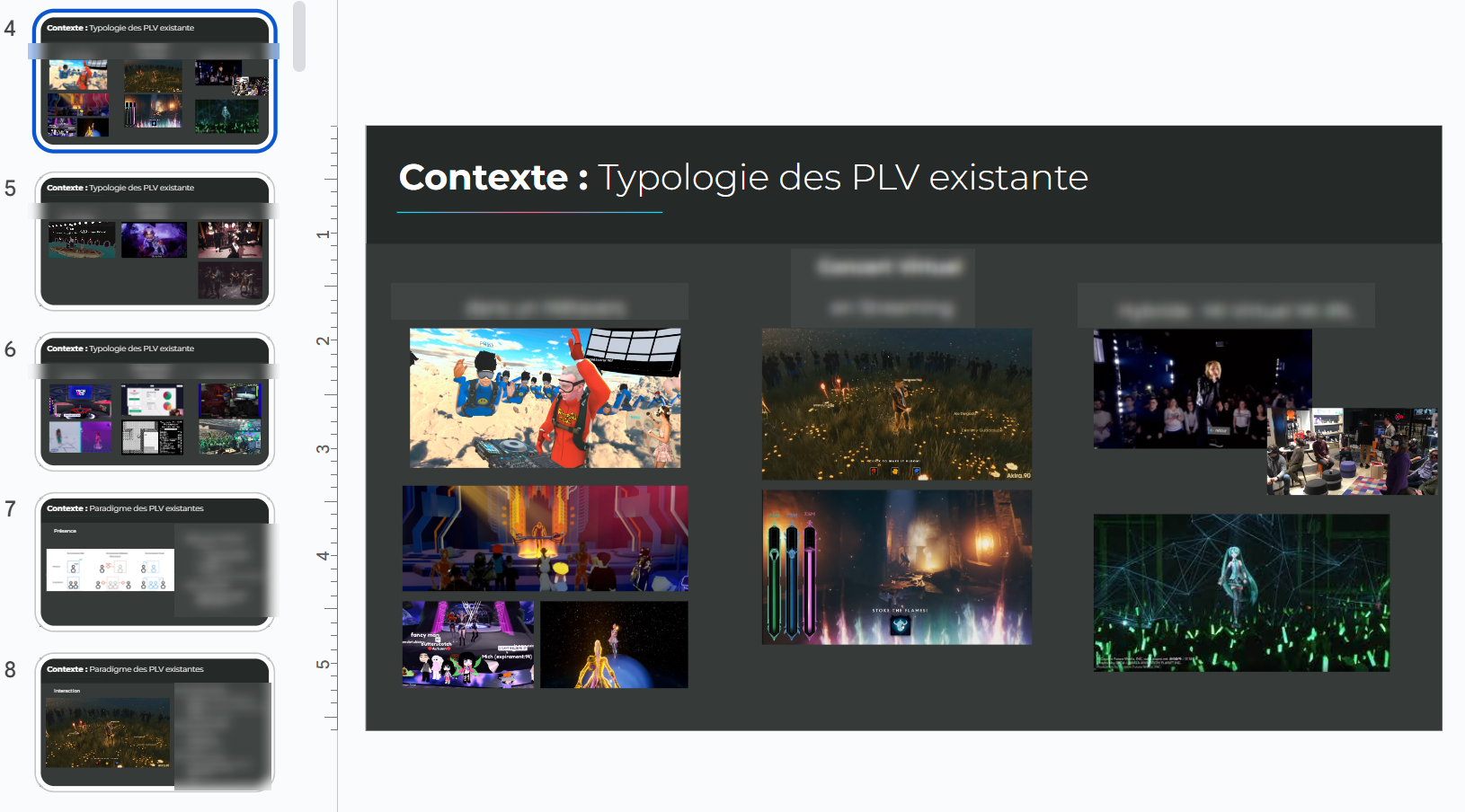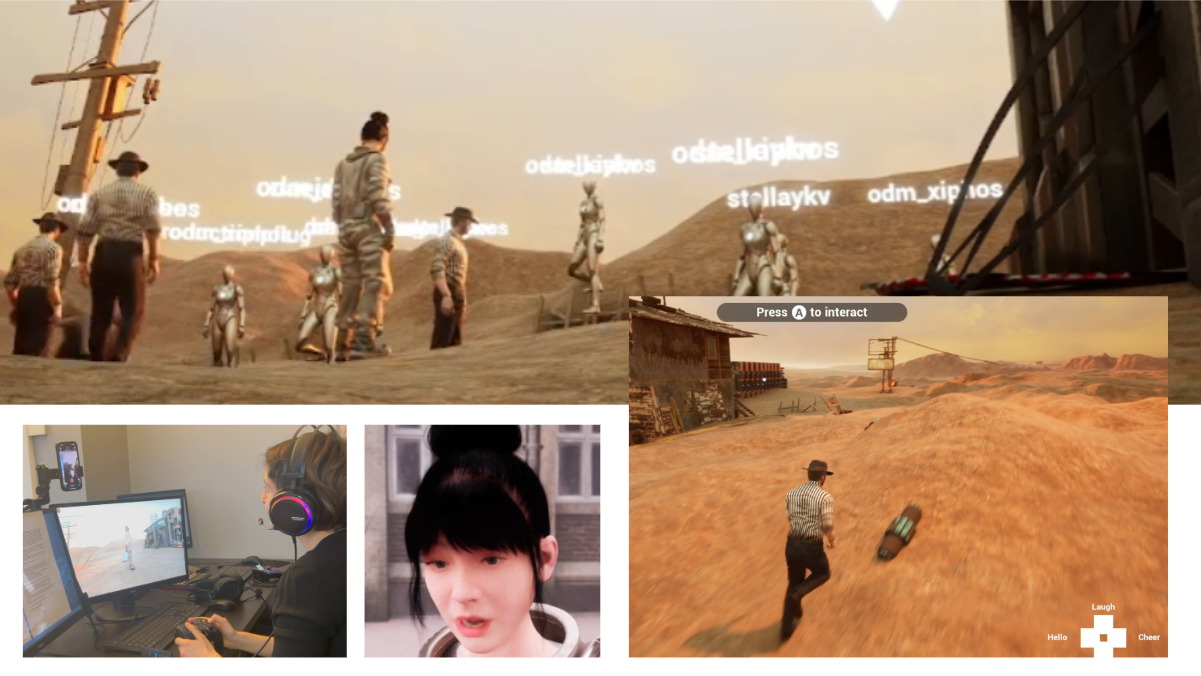
Virtual Live Performance Tool
Product Design
I had the opportunity to lead a user centric R&D project aimed at developing a Unreal-based control system for live and virtual performances.
Research problem: How can we rethink the relationship of co-presence between artist and audience in live and virtual performances?
Plug-in Unreal Prototype
Genre
Duration
2023-2024
Dates
1 year
Team Size
2
Product Designer
Role
Client
Albyon
Missons
Lead ideation workshops in Miro
Specification of the design document
Conduct a complete user search
Master the Utility Widget editor and integrate assets into Unreal Engine
Use of Plastic CMS and Click-Up production tools
Organize, conduct and result in a user test report.
Design Process
Field study
State of Art
Iterations
User tests
Field Study
To confirm and clarify the roles of the stakeholders involved in experiencing or creating a live virtual event, we took care to interview performers, spectators, and live experience creators.
Users Profiles
I conducted 14 oral interviews, which allowed me to establish the core target groups for the tool. Indeed, through affinity diagram analysis, I was able to synthesize all the feedback into needs, motivations, fears, and expectations regarding virtual live experiences, represented through Personas.
Users Journey
I mapped out the different production pipelines under a single schema to identify and address the friction points encountered during their various experiences.
2. State of Art
I analyzed existing live and virtual performances to try to define typologies and identify potential friction points from a user perspective, with the aim of improving them.
3. Iterations
The tool underwent three phases of iteration, each including user testing with the previously identified target group. These iterations allowed us to pivot the project based on relevant feedback from the core target audience.
4. User Tests
A test run allowed us to identify the major points of friction during a live event. These tests were crucial for the validation of the prototype.



